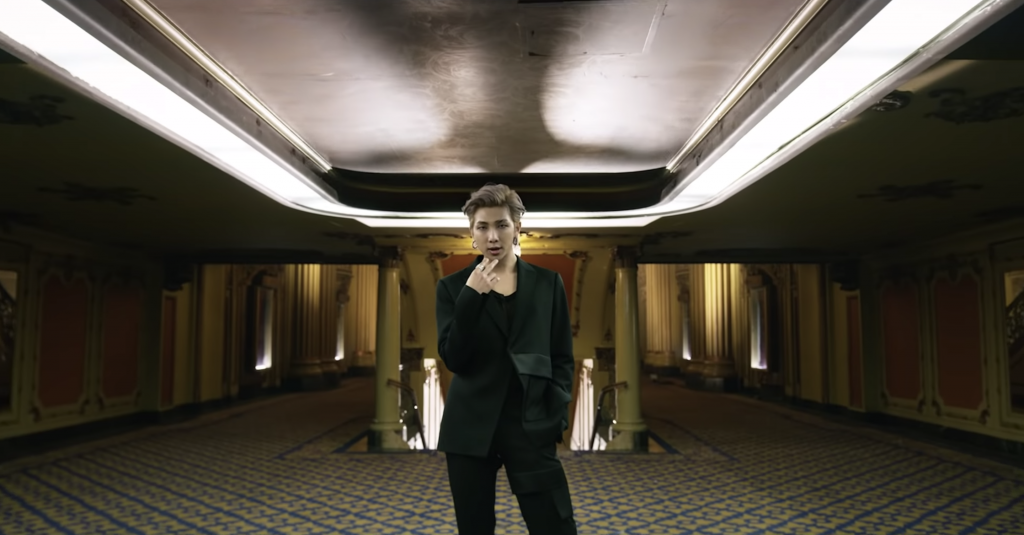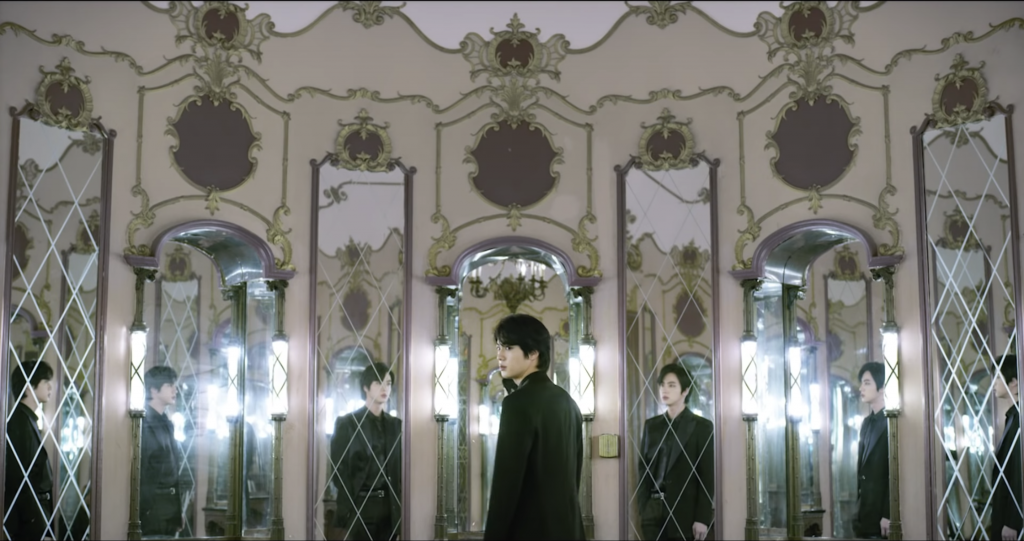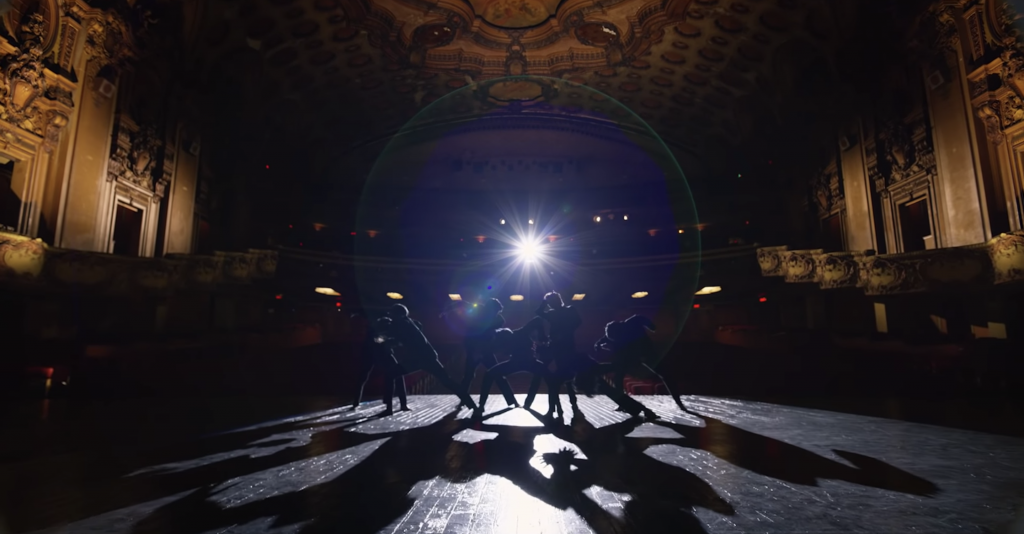
Before we get into the MV review of BTS‘ “Black Swan”, allow me to share my experience as someone who loves art. Since young, I’ve always enjoyed dabbling in different art forms–playing piano, ballet, painting, acting, etc. At the age of 13, I thought I had finalised what I wanted to do with the rest of my life, and so I begged my parents to send me to art school so I could study theatre. Those six years were the worst six years of my life. With the constant pressure to get good grades, the need to fight for lead roles, and the never-ending reminder that I will never be as good of an actor or as creative of a director as compared to my classmates, my love for theatre slowly died. Which is why, upon watching the “Black Swan” MV, my heart ached with an indescribable pain.
“Black Swan” tells the story of one slowly losing their passion, and who is unable to find joy in what they enjoyed before. It also expresses how insecurities and self-doubt eventually build up and loom over you, which is represented by the use of shadows in the MV. The overall tone and mood of the song and the MV are generally depressing–there is no uplifting moment in the melody, the MV ends with shadows cast on the members’ faces and Jungkook leaving the theatre.
The only part of this entire piece that attempts to provide a sense of hope is the second half of the lyrics, in which the persona steels their resolve to continue to make what they want to make. But even then, that is easily washed away with the never-ending darkness that constantly makes them feel unhappy. The MV for “Black Swan” does not end on a happy note, and neither does the song, both melodically and lyrically, which is why fans were afraid that this may be BTS’ last album, for it is implied that the members have lost their passion for music and do not want to perform anymore.

In some sick way, I was comforted by the fact that I was listening to a thematically dark song that is essentially a huge cry for help. There is no overly bright and peppy personality to tell me not to give up, no burst of positivity to tell me that I can do it, no forced optimism to pretend to cheer me on. No, there was only the shadow that reminded me of the exhaustion and unwillingness to go to class where I would be told that I simply was not good enough.
Music these days is so focused on positivity and resilience because we are currently living in a society where many are under the stress and pressure from this need to be successful; the things we enjoy soon have a grade slapped on them, or become monetised, and suddenly it becomes a chore to even do them. Songs need to be happy sounding, because happy songs raise one’s mood and productivity, which is why the majority of the songs in Map of the Soul: 7 are so positive sounding, with the exception of “Black Swan” and “Shadow”.
However, “Black Swan”‘s darkness is charming in its own way–everything about the MV is brutally honest. We see Jimin dancing alone, but we never see his face. Yet when we do, it is only for a brief moment before he falls. His dance ends with him on the floor, and he is covered by shadows. The use of light and darkness represents hope and despair respectively, with the idea that hope does not last for long in the sea of despair.
Jin is in a room of mirrors, but his reflection does not follow what he actually does. This is a reference to the 2010 psychological horror film that goes by the same name, Black Swan. In the film, this scene was used to emphasise the protagonist’s growing hallucinations and her insecurity about not being able to embody the role of the black swan in the famous ballet Swan Lake. When watching this part of the MV while listening to the song, the idea that one’s self-doubt and lack of awareness of the self can eventually lead to one ultimately losing themselves and their passion emerges.

The whole MV takes place in grand, magnificent settings, almost reminiscent of the group’s MV for “Blood Sweat & Tears“. The majority of scenes are set in an empty theatre, with Suga rapping on a vast stage, or J-Hope mingling around in the foyer. Typically, an empty theatre sparks awe in the performer, inspiring in them the hope to see all the seats filled up during the performance. Yet the melancholic atmosphere of the song makes the theatre seem so cold and lonely, even when all seven members are dancing with each other. This loneliness suggests that each member is struggling individually, and that not even the help from others could save them from their own despair.
At the end of the MV, Jungkook watches the shadow disappear before leaving the theatre. Although it may seem as if the despair has been expelled, this expulsion may be temporary, for the members never really show themselves coming to accept this darkness. Jungkook leaving the theatre without much emotion may also suggest that while he is moving on, the insecurity and self-doubt will soon come back.

“Black Swan” is brutally honest with its feelings. It doesn’t sugarcoat the truth in a brightly coloured MV and song; it simply delivers what it wants to convey to the viewer: the pain of losing passion in something you once truly enjoyed. “Black Swan” is one of the stronger songs BTS has released in recent comebacks, for it is a song that many can relate to, regardless of whether their passion was related to art or not. Sure, “Black Swan” dug up many unpleasant memories for me, and it made me extremely upset to come to terms with the fact that I could never truly enjoy theatre the way I used to. Nevertheless, the experience the MV brought was truly an enlightening one.
Overall, “Black Swan” is depressing, but that depression is what we need to accept in order to truly understand ourselves, and following the group’s current concept, understanding and finding our soul.
(YouTube. Images via Big Hit Entertainment.)


